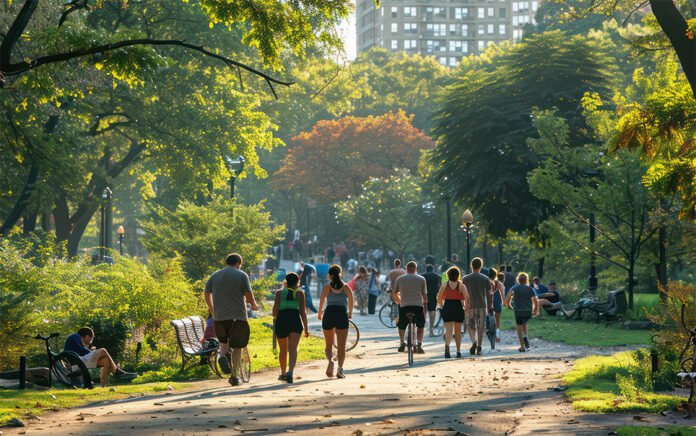It’s not about faster times or fitter bodies—it’s about feeling happier. That’s the eye-opening finding from a major study published in PLOS Global Public Health this week.
Headed by Professor Steve Haake at Sheffield Hallam University, the research introduced a groundbreaking model for tracking life satisfaction, trialled on the massive community of Parkrun participants who lace up every week for the UK’s free 5k.
The UK’s current national average life satisfaction score stands at 7.5 out of 10, according to 2024 data. While personality is the strongest single predictor of how satisfied people feel with their lives, external factors such as relationships, finances, and health can fluctuate over time, influencing overall well-being.
The research team sought to understand how communal physical activities, such as Parkrun, affect these scores.
Together they analysed survey responses from over 78,000 Parkrun participants out of nearly one million who had taken part in at least one event in the past year. Participants answered questions on their life satisfaction, physical and mental health, and activity levels both before and after joining Parkrun.
Dramatic gains
Participants who reported the lowest levels of health at the start—those rating their health as “very bad”—experienced the most dramatic gains in life satisfaction. However, even highly active individuals who already reported “good” or “very good” health saw positive changes.
While physical health improvements were noted, mental health benefits emerged as the strongest predictor of life satisfaction increases. Factors such as happiness, feelings of personal achievement, and the simple enjoyment of participating week after week had the most significant impact.
“Our previous paper showed that life satisfaction increased for those participating in Parkrun—what we didn’t know was how Parkrun ‘worked,’” said Haake. “This new paper has given us an answer: rather than the purely physical aspects, it is improvements to mental health—things like happiness, a sense of achievement, and having fun—that matter most.”
The study also tracked patterns by age and gender. Life satisfaction was found to dip in early middle age before rising again in later years. Older participants reported greater perceived improvements in well-being than younger runners. Women, on average, experienced slightly larger boosts in life satisfaction than men.
Beyond personal well-being, Parkrun delivers measurable economic benefits. The researchers estimated its contribution to the UK economy at £668 million. This includes £75 million from the direct value of runs or walks completed (£1.92 each), £132 million linked to increased physical activity outside Parkrun events, and £463 million from a 3% improvement in health status, as indicated by earlier studies.
The team’s new model for evaluating life satisfaction could be applied to other public health initiatives, even those unrelated to exercise. This offers policymakers a tool for identifying cost-effective programs that deliver the greatest wellbeing returns.
“In a world of limited resources, our model is a useful way of working out which initiatives are most effective,” Haake added.





